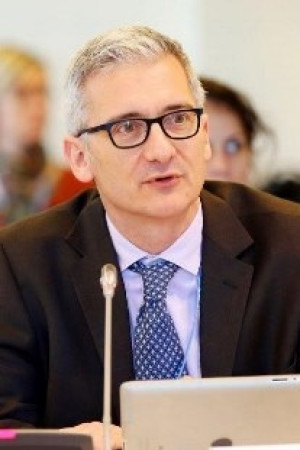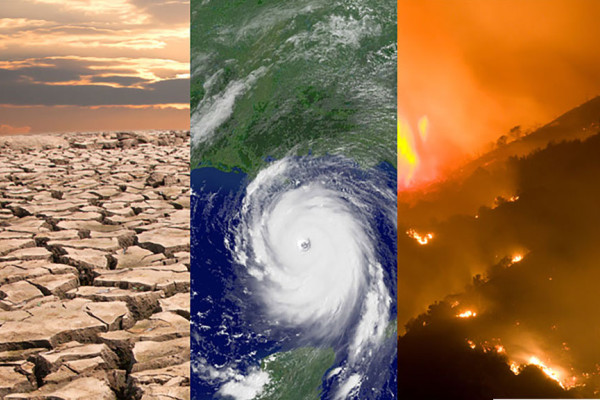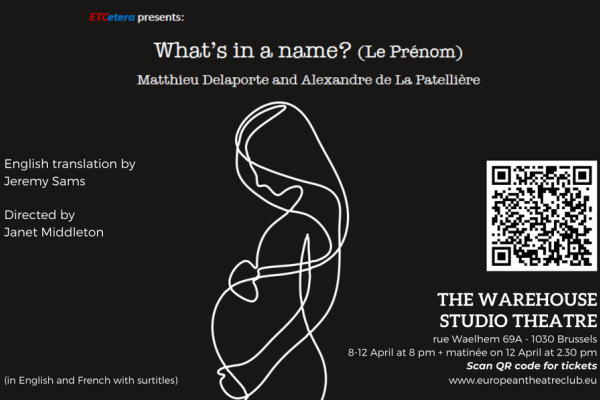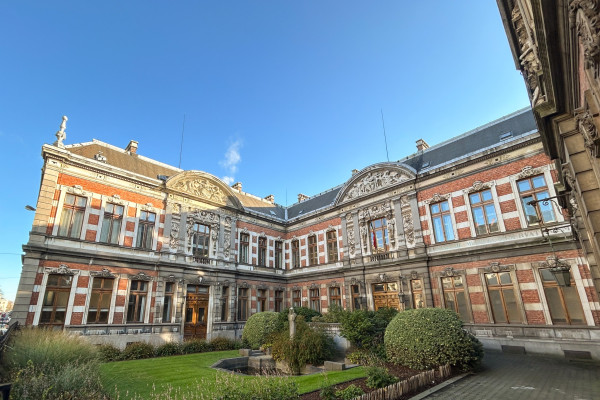
Jacob Werksman's talk will focus on the international dimensions of EU climate policy, including the Paris Agreement negotiations and the way in which EU climate policies can affect trade and investment flows globally. It is expected that the next Commission will need to defend continued EU leadership on climate change with strategies and policies that ensure the EU can compete and prosper while transitioning to net zero emissions. Mr. Werksman will also focus on the legal dimensions of the EU's responsibilities to prevent dangerous climate change under human rights law, which are relevant to the ethical issues of climate change. This is now before the International Court of Justice in the form of a request for an advisory opinion.
Since 2012, Mr. Jacob Werksman has, served as Principal Adviser to the Directorate General for Climate Action in the European Commission, where his work concentrates on the international aspects of European climate policy. He is Head of Delegation for the EU to the Paris Agreement and Convention on Climate Change. He advises and represents the Commission on the relationship between climate policy and other areas of international law and policy. He supports the EU Commissioner for Climate Action and the European External Action Service in multilateral negotiation relationships with major economies and other international partners.
Werksman is an international lawyer specializing in international environmental law and international economic law. Prior to joining the Commission, he provided legal and policy advice to governments, NGOs and international institutions in the context of the multilateral negotiations on climate change, biosafety and trade. He has taught and published widely on the international legal dimensions of climate policy, including on the design of compliance mechanisms, climate finance and on the relationship between carbon markets and international trade and investment agreements.
Mr. Werksman is currently a visiting professor at the Fletcher School of Law and Diplomacy, and has lectured in international environmental and economic law at the masters level at New York University Law School, Georgetown University Law Center, and at the School of Oriental and African Studies and University College at the University of London. Prior to joining the Commission, he held posts at the World Resources Institute, the Rockefeller Foundation, United Nations Development Programme, and the Foundation for International Environmental Law and Development (FIELD) in London. He holds degrees from Columbia University (A.B.), the University of Michigan (J.D.) and the University of London (LL M.).
Image copyright credit: Carita World Foundation, CC BY-SA 4.0, via Wikimedia Commons
Our lecturer Jacob Werksman is a lawyer. He focused on the legal aspects of EU climate policy, in particular its viability. He knows these issues in depth since he was the director of the EU delegation to the UN Paris Climate Agreement Talks in 1992 to agree and commit to reducing greenhouse emissions by participating nations around the world.
Climate change is evident. Countries in the southern parts of the globe suffer most today from the effects of climate change and they are very unhappy about how slowly the big powers are moving on climate action. For some small island nations, their very existence is threatened. It has become urgent to tackle the problem.
The negotiations for a treaty began in 1992 in Paris at the first Earth Summit. First, they developed instruments to achieve a consensus, itself a long process, at the end of which governments had to sign the agreement so that the treaty would become binding. However, participation in the agreement had to consider the relative wealth of each country. For example, a country like Bangladesh does not have the resources needed for conversion from fossil fuel to green energies and we can not demand that they invest the same amount of money as more developed nations. The weakness of international law is that all participants must comply and agree to a transition to new sources of energy.
EU member states have ratified the protocol of the Paris Agreement. They knew how EU climate policies could affect trade and investment flflows globally. Thus, the Paris Protocol drives the EU’s transition to a greener economy. The objective is net zero emission of greenhouse gases by 2050 using greener sources of energy. Europe abides by the international rule of law, mainly based on international treaties.
The Kyoto Protocol adopted in 1997 was the second attempt to reach international cooperation for tackling climate change. It was for the first time that countries could be charged with penalties if they failed to achieve the agreed reduced greenhouse gas targets. The protocol striving for fairness, considered the economic differences between richer and poorer countries and assigned the obligation to reduce emissions to wealthier nations. The Kyoto Protocol could have a huge impact on greenhouse gas emissions, but if the two biggest polluters in the world, the United States and China do not do much to reduce emissions, then the Protocol will not work. If China could be persuaded to accept the emission limitations suggested, then maybe the US would join. Until now China has maintained that it is a developing country that needs energy to grow.
The problem with the Paris Agreement is that it allows each country to decide their reduction targets. As for the Kyoto Protocol, it works in theory, but in practice it is problematic. The EU hopes that if it meets the emission targets then other countries will follow its example and the Paris Agreement will become binding. The declared objective is to limit global warming to 1.5°C.
It took over 30 years to draft and implement the treaty, but Mr Werksman remains optimistic. We need to continue negotiations on the political level and invest in technology.
Ursula von der Leyen, recently re-elected president of the European Commission is committed to adhering to the aims of the European Green Deal. The big challenge for the EU is to make the transition to a green economy without losing jobs. We need to protect our industry. Potential solutions under discussion include the introduction of a corporate tax on emissions. There are also investigations into technological innovations. Now the great hope is hydrogen which is easy to convert to energy without any emissions. The problem is that it takes energy to produce hydrogen as a fuel. So, the EU is investing in what will be called Green Hydrogen.



